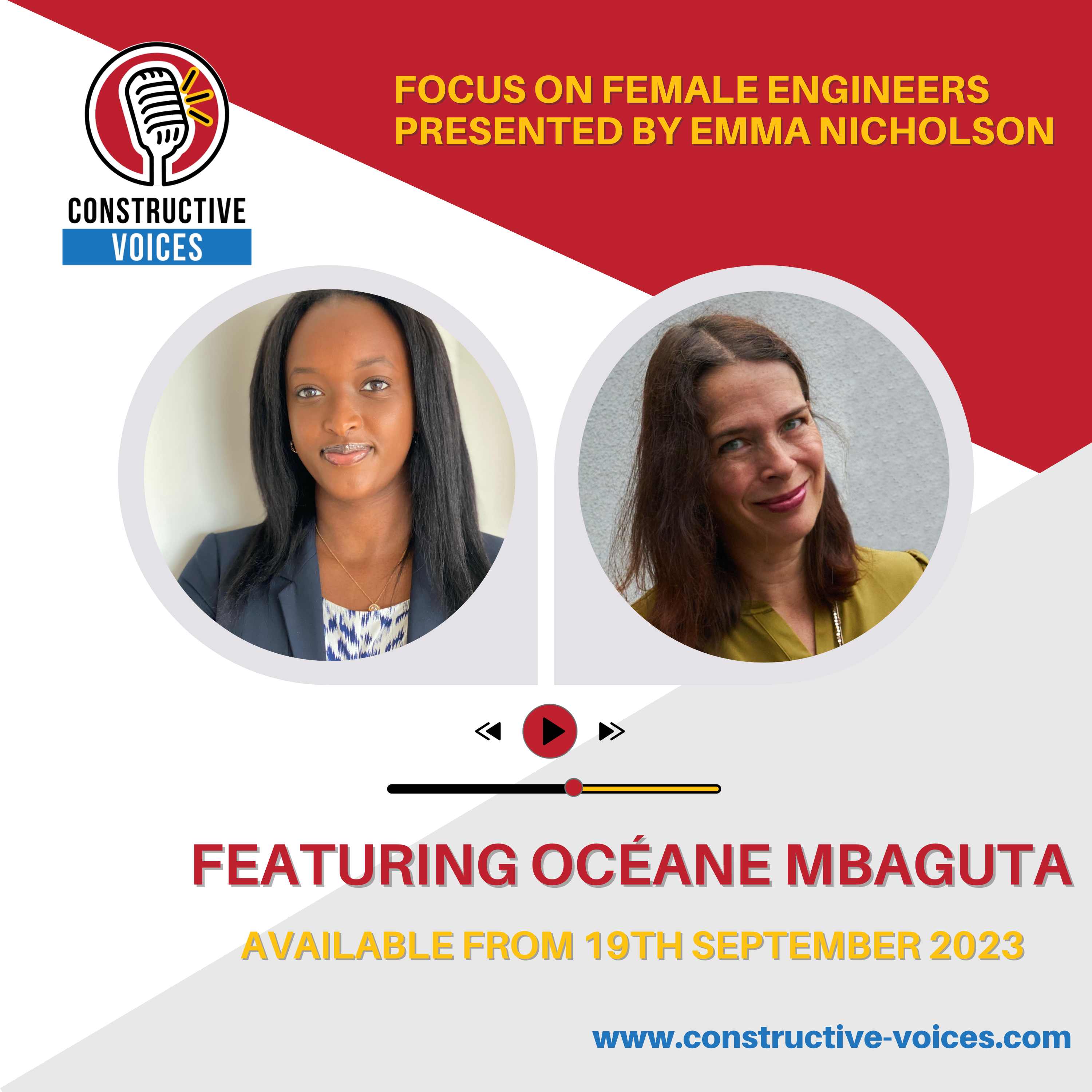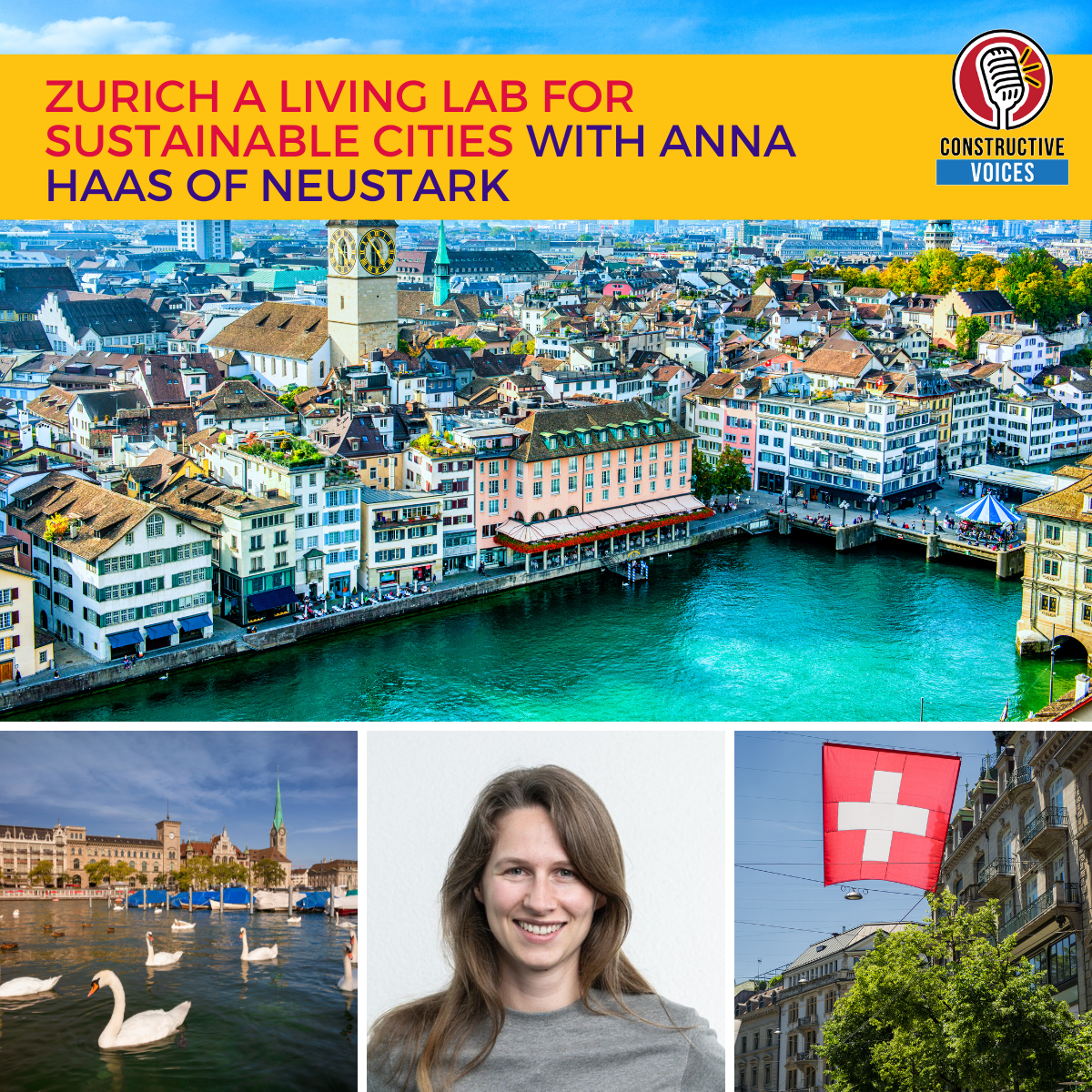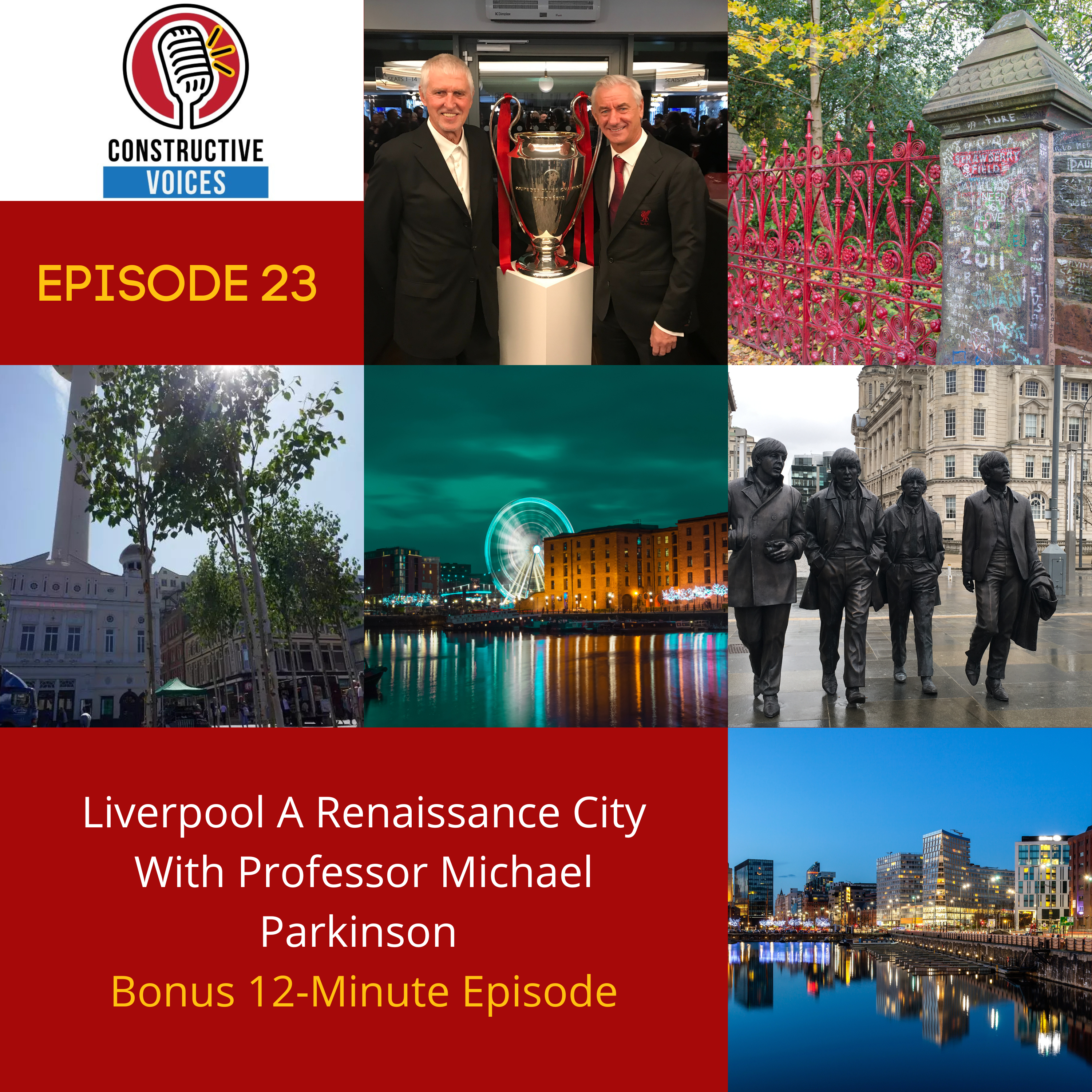Episode Transcript
[00:00:00] Speaker A: This is Constructive Voices. Constructive Voices, the podcast for the construction people with news, views and expert interviews.
[00:00:09] Speaker B: This is Jackie Deberka for the Constructive Voices Good News podcast. A short, sharp burst of uplifting stories from the built environment with a dash of biodiversity. Now we're all about highlighting positive solutions that have the potential to improve our world. Today we feature floating developments, the EU's proposed nature credit System and and Ecosia's work in Burkina Faso.
[00:00:33] Speaker A: This is Constructive Voices.
[00:00:35] Speaker C: One of the fascinating things about floating structures is that usually these are hollow structures because they have to be very light. So we make for instance steel or concrete foundations or composites. There are different materials that we can use. But often those structures, they create a lot of space.
And the space can be used for decentralized technologies of wastewater treatment.
They can be used for decentralized drinking water treatment. The space in the floating platforms can be used for electricity storage.
So floating structures by nature, they offer a lot of opportunities to become more self supporting, to become more off grid. We have also done for instance, a floating solar study. Floating solar is a great technology also to have floating energy generation.
We all know about the floating offshore wind. Of course we can also use floating algae and seaweed systems to produce floating biofuels. So floating urban development creates a lot of opportunities to implement decentralized concepts for water and energy.
And in that sense, connecting a floating neighborhood to the shore with a sewer system is not necessary.
So I think that in itself creates a form of resilience because these smaller scale structures are more self supporting, they're less vulnerable than the huge grids.
If you have a power blackout or something, it has a big impact. But if neighborhoods create their own, have their own system, it's more redundant and more resilient.
That's one thing.
What we have also seen through our years of research in wave basin tests is that floating structures, they reduce the wave impact on the coast.
So the moment you start creating a floating neighborhood in front of the coast, you're also protecting the coast from storms, from waves.
So in addition to being flood adaptive themselves, they also protect the mainland from being flooded during extreme weather.
[00:02:31] Speaker A: This is Constructive Voices.
[00:02:34] Speaker B: Brussels is moving to put nature on the balance sheet. As the EU unveils its roadmap for nature credits. Brian McSherry explains how this market driven approach could unlock private investment, reward people restoring ecosystems and mark a big stability step forward. Dive into the full story from the 9th of September on the constructive Voices website or on your favorite podcast app.
[00:02:57] Speaker A: This is Constructive Voices.
[00:02:59] Speaker B: Ursula von der Leyen for Example was one of the people giving op eds naturally enough, after this. And I have a quote from her here and I think it's very straightforward and can be very easily digested by like an average person. We have to put nature on the balance sheet. That's exactly what nature credits do.
When well designed, they will provide an efficient, market driven instrument that encourages the private sector to invest and innovate. With investment and innovation, we generate revenue for those who work to protect nature.
[00:03:30] Speaker D: Yeah, I mean, I think obviously I'd agree with everything you just said there from the President, but I think it's very well articulated and I think it really, it positions what the roadmap is aiming to be. And I think, you know, this putting nature in the balance sheet has been something that a lot of people have spoken about for a while.
There's always been the how. And I think this roadmap is a step in that right direction, a big step, I would say. But for me, statements like that in the op ed I think is very clear. A lot of discussions and it was last September at a conference in Munich, the President said something about this, about nature credits was the first real public discourse about it. And she said something very similar at the time. And for me, when I read this and I listen to those different presentations, it's very clear what the ambition from the European Union is about. This is put it on the balance sheet, it's helping and it is really about protecting and restoring and mobilizing the market to allow that and put in funding for nature and recognizing the importance of nature and how it basically pays for itself. You know, we know nature is the cornerstone of our economy and businesses depend on it. The World Economic Forum, I think in 2020 said half the world's GDP is moderately highly dependent on biodiversity. The rest of it still is, but maybe to a lower extent. So having any kind of conversation where it connects that business world to the rest of the nature world and the financing I think is to be supported.
[00:04:54] Speaker A: This is Constructive voices.
[00:04:57] Speaker B: Finally, a story about the search engine Ecosia.
[00:05:00] Speaker A: This is Constructive Voices.
[00:05:03] Speaker E: Now let's catch up with some of the great work the search engine Ecosia is doing. In 2016, we this savanna in Burkina Faso was nearly bare. So together with their partners Holmes e terre, Ecosia planted 29,328 trees. Rain is sporadic there, so they used half moons, an ancient technique that holds water in pits to help young trees survive. Six years later, trees and grassland are growing, the soil is recovering and wildlife is returning. When you use ecosia Your searches are helping protect these trees. And they'll keep doing it for years to come.
[00:05:36] Speaker A: This is constructive Voices.


